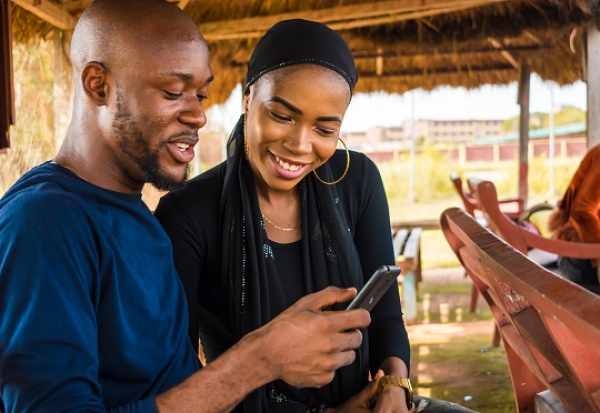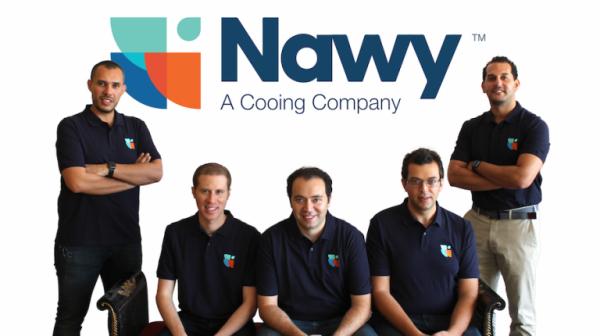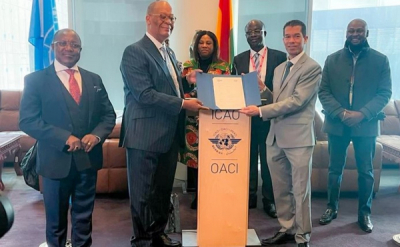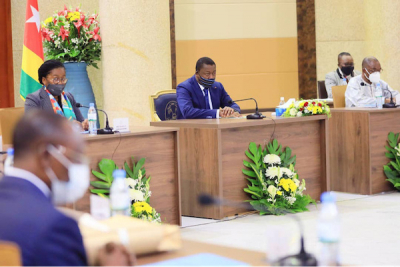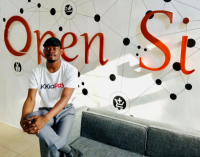Malawi has embarked since 2010 on the development of its financial ecosystem. Since then, the country has developed three strategies to achieve its goal, with the digital at the heart of the 2022-26 strategy.
The Malawian government reached a $14.2 million deal with the African Development Fund (ADF) -the concessional window of the African Development Bank (AfDB) Group- to make its digital payment system more efficient. The agreement was inked last February 10.
The project includes the extension of the Internet network, the digitization of more payment channels, the development of payment system interoperability, the introduction of digital payment solutions in various sectors such as agriculture. The ultimate goal is to improve financial inclusion in the country, especially for women, youth, and rural people. This will subsequently make business transactions more efficient, allowing small businesses to access new domestic and international markets.
The ADF’s investment aligns with Malawi’s Digitization, Financial Inclusion, and Competitiveness (DFIC) Support Project approved in December 2021 by the AfDB. Sosten Alfred Gwengwe, Malawi's Minister of Finance and Economic Affairs explained that “the DFIC project is aligned with the Malawi Digital Economy Strategy (2021-2026) and the Third National Strategy for Financial Inclusion (2022-2026); both contribute to achieving Malawi’s long-term objective of inclusive wealth creation supported by an inclusive financial system and digital economy.”
AfDB seeks, through the DFIC project, to help increase financial inclusion in Malawi from 58% in 2019 to 65% in 2025 (with 42% women and 37% rural populations); contribute to the improvement of the country's ranking in the Global Competitiveness Index (GCI) from 5.7% in 2019 to 7% in 2025.
The Bank also aims to contribute to increasing the export penetration rate (number of markets) from 79% (2018) to 100% (2025); increasing the volume of exports from 31% of GDP in 2019 to 35% in 2025, and improving the contribution of ICT to GDP from 5.7% in 2019 to 7% in 2025.
Adoni Conrad Quenum
Seven months after an initial investment, the Sawiris family office made a follow on investment in Egyptian propTech company Nawy. In a February 13 statement, the beneficiary reported it has raised $5 million in seed capital.
The resources will be used to support its expansion strategy in North Africa and improve investment in new technologies and the digital (artificial intelligence, machine learning, etc.).
The startup, which facilitates and simplifies the process of buying and selling real estate online, claims to have helped more than 60,000 people find a home to date. Nawy also says it has sold over $200 million worth of real estate through its platform.
"We were one of the first investors in Nawy because we saw the potential of the company and shared its ambition. We immediately increased our investment when we realized how fast they were expanding and the trajectory of the company coming to fruition. We are very excited about the future, especially as Nawy expands its services and continues its momentum in the real estate market," commented Onsi Naguib Sawiris, head of Sawiris family office who led the investment in Nawy.
As a reminder, the Sawiris family office led an undisclosed seed funding in Nawy in July 2021. The money was used to strengthen the company's technology, increase services and increase staff. In its July 2021 forecast, Nawy planned to end the year with 300% revenue growth.
Chamberline Moko
Led by the AfCFTA Secretariat, in collaboration with African regional economic communities and governments, the solution addresses the challenges related to the cumbersome process of implementing a single market.
On January 1, 2021, the African Continental Free Trade Area (AfCFTA) came into effect. Supported by 54 countries, its objective is to create a single continental market that promotes the free flow of goods and services. Given the size of the measures that must be undertaken by every member country, and to ensure the successful implementation of the market, the AfCFTA secretariat has developed the digital tool tradebarriers.africa. The latter is a kind of customer service that will allow African entrepreneurs to report cases of non-tariff barriers (NTBs) within the market. NTBs include excessive border fees, cumbersome documentation requirements, or restrictive product regulations.
NTBs are classified into seven categories: government participation in trade and restrictive practices tolerated by governments, customs, and administrative entry procedures, technical barriers to trade, sanitary and phytosanitary measures, specific limitations, charges on imports, others (transport, clearing, and forwarding, etc.).
To report an NTB, the user must first register on the platform by filling out a form. Next, they activate their registration on tradebarriers.africa via a link sent to the email address provided during registration for confirmation. Once this step is completed, the account is active, the reporting of an NTB is done with the "Report an NTB" button. A reporting form is then proposed to the user with information to be filled in.
According to the AfCFTA secretariat, once a non-tariff barrier is reported, the governments concerned will follow up to resolve the problem. The NTB coordination units of the secretariat, those of the regional economic communities, and the national focal points will support the process. The complainant can find out about his or her complaint - whether it is still being processed or resolved - directly on the platform, which is available in English, French, Arabic, and Portuguese.
For greater efficiency in reporting non-tariff barriers, the AfCFTA Secretariat is currently working on a service that will be accessible on mobile phones.
Adoni Conrad Quenum
Africa has the lowest per capita car ownership in the world, due to limited access to finance for vehicle purchases. This is a problem that Ladi Delano and Jide Odunsi hope to solve with their start-up Moove Africa.
Ladi Delano (photo, right) and Jide Odunsi (photo, left), are two UK-based Nigerian entrepreneurs who want to democratize mobility in Africa through new technologies. They founded Moove Africa, a start-up offering a digital platform where users and entrepreneurs in the transport sector have access to loan options for the purchase of vehicles. From the London School of Economics to Oxford University to MIT, the entrepreneurial duo has a remarkable academic background.
Ladi Delano, a serial entrepreneur, and Jide Odunsi, a former investment banker at Goldman Sachs and a former management consultant at McKinsey, have a combined 8 years of entrepreneurial experience, with three start-ups launched including Moove Africa. Sharing a passion for African development, they decided to dedicate their experience to this goal.
They officially launched Moove Africa in July 2020 after realizing that the demand for vehicles in Africa far exceeds local production, leaving millions of individuals and businesses to depend on imports of used cars, cars that are mostly not in a good condition. Also, some countries, like Nigeria, have put in place measures that limit car imports to boost local manufacturing. These measures make it even more difficult for Africans to get cars.
Moove Africa was therefore born to help people get access to quality vehicles. The start-up has an app where users can secure loans to buy a car. The loans can be repaid over 30, 36, or 48 months, in weekly installments. To date, Moove-financed cars have made over 2.6 million trips and traveled over 30 million kilometers in six markets, namely Lagos, Accra, Johannesburg, Cape Town, Nairobi, and Ibadan.
In less than two years since they launched the start-up, Ladi Delano and Jide Odunsi have successfully raised $78 million from investors, including $10 million in their latest round. The funds were secured on February 1, from NBK Capital Partners.
"The investment…will fuel our continued growth trajectory as we expand our regional operations to empower more mobility entrepreneurs," said Ladi Delano, co-founder, and CEO of Moove Africa.
On February 10, Moove Africa's founders announced a partnership with CFAO Motors, a division of CFAO Automotive, which operates in 36 countries. "We’re especially proud to be working alongside the largest automotive distribution network in Africa and as a result of this, we’re now in an even stronger position to empower a new generation of successful and productive mobility entrepreneurs,” said Ladi Delano.
Aïsha Moyouzame
The Ghanaian national ID card is officially accepted as an e-passport in 197 countries worldwide. The country received a certificate attesting to the fact last February 9 from the International Civil Aviation Organization (ICAO). The ceremony took place at ICAO’s headquarters in Montreal, Canada.
Ransford Sowah, Ghana’s ambassador to Canada, who represented the country during the ceremony, explained that “with the Key Ceremony, all holders of the Ghana Card have an ICAO-compliant e-passport that can be read and verified at all ICAO-compliant airports/border posts across the world. It can be used for international travel - a subject of course to visa restrictions and bilateral agreements. Indeed, the Ghana Card is already valid for travel in all ECOWAS countries.” The Ghanaian ID contains all the biometric information which can be used to authenticate the identity of the holder with a cryptographic digital signature stored on the chip, similar to that of the passport. This transition was already announced last November by Vice President Mahamudu Bawumia during a conference at Ashesi University on the role of digitalization in the transformation of the Ghanaian economy.
As a reminder, Ghana officially became the 79th member of the ICAO Public Key Directory (PKD) community on October 13, 2021. The ICAO PKD is a central repository for exchanging information required to authenticate e-passports.
“For Ghanaians living or born in the diaspora, holders of the Ghana Card can be allowed to board any flight to Ghana without any visa requirement as we seek to give an inclusive Akwaaba [meaning welcome in Twi, a local language in Ghana, ed] experience to all children and descendants of our motherland,” Ransford Sowah concluded.
Adoni Conrad Quenum
Togo wants to leverage digital technology to achieve inclusive and sustainable economic growth. To this end, it has established the Togo Digital Agency, which will help the government implement digital projects.
Last Monday, Feb 7, Togo's Council of Ministers adopted a draft bill aimed at accelerating the digitization of visa and resident permit applications and issuance. The meeting was held in Kara (412 km north, from Lomé).
"The main purpose of this draft bill is to update the general rules applicable to the entry, stay, movement, and settlement of foreigners on Togolese territory. In particular, it provides for the digitization of the process of applying for and issuing visas and residence permits," said the Council's statement.
The adoption aligns with the third axis of the government's roadmap, which aims at "modernizing the country and strengthening its structures."
Pending the bill's implementation, foreigners can still get their visas (tourist, diplomatic, business) at Togolese consulates and embassies (which can also issue immigrant visas for Togo).
On the territory, visas on arrival are issued by immigration services at the borders and the Gnassingbé Eyadéma International Airport. They are valid for a maximum period of 7 days, according to available information, but can be extended to a month at the Foreigners and Passports Office. For other types of visas, it is the Direction générale de la Documentation Nationale (DGDN) that handles related procedures.
Ayi Renaud Dossavi
With digital transformation accelerating worldwide, the competition among solution providers is getting tougher. To enable their investors to leverage opportunities brought up by this transformation, some governments have started taking strong measures.
This year, Russia will deploy digital attachés in 16 countries. This was disclosed last Monday, Feb 7, by Russian Deputy Prime Minister Dmitry Chernyshenko (pictured). South Africa - the largest digital market in Africa and a privileged partner of Russia on the continent through the BRICS (economic grouping formed by Brazil, Russia, India, China, and South Africa) - is one of the countries to welcome one of these attachés.
The deployment of digital attachés in some Russian embassies is the result of a collaborative agreement between the Ministry of Digital Development, Communications and Media, the Ministry of Industry and Trade, and the Russian Fund for the Development of Information Technology (RFRIT), and is part of the government's efforts to support the domestic IT industry.
Recruited attachés will “promote domestic software products abroad, provide consulting, information and analytical, legal and organizational support to Russian IT companies. Their main task is to develop the export of Russian digital solutions," said Russian Prime Minister Mikhail Mishustin. By 2024, the number of countries where Russian digital attachés will be stationed should grow to 28.
Russia’s digital attaché will be joining the US digital attaché in South Africa. The American representative came into the country in December 2016, to promote US tech companies and help SA navigate through foreign digital and trade policies. The US, let’s recall, launched its digital attaché program in 2014.
In Russia, it is the Russian Ministry of Digital Development, Communications, and Media that handles the ongoing recruitment of digital attachés.
Muriel Edjo
WattNow has gained popularity among individuals and companies over the past four years. This has earned the company participation in many international events and the interest of new investors.
To tackle the waste of energy in Tunisia and help households keep their electricity bills low, Issam Smaali (pictured) developed and launched, in 2017, his startup WattNow. Using IoT (Internet of Things) and digital tools, WattNow enables consumers to monitor, analyze and adjust the consumption of their electrical appliances in real-time.
The solution works with a smart meter. It integrates a machine learning system to analyze consumption. Collected data is sent to the startup's cloud where they are analyzed with algorithms and the results are sent to consumers either via a mobile app or a dedicated web interface. Based on the result, the user can directly give orders to the box and reduce their consumption.
Users can download the app from App Store and Play Store and set it up with the smart meter. The WattNow app displays real-time energy consumption both throughout the house, but also for each device that turns on or off. It also delivers a daily, weekly, or monthly history of the electricity consumption of the home or business. Alerts are sent to users when a device stays on or consumes too much energy.
With WattNow, Issam Smaali seeks to lower electricity bills for Tunisians by up to 30%. Highly appreciated for its social impact, the service has already been adopted by several households and large companies such as Orange Tunisia. The latter installed it in 2018 on several of its telecom sites and administrative buildings.
The solution was incubated at Flat6Labs and began its consolidation and development thanks to a $20,000 prize won in 2017 at the “BloomMasters” entrepreneurship competition. Another award worth $100,000 was obtained from the Oman Technology Funds. In 2019, WattNow benefited from the supervision of the Orange Fab Tunisie accelerator and participated at VivaTech 2019. In 2021, the startup participated in several tech events, including the annual GITEX GLOBAL technology fair in Dubai, and raised several thousands of dollars from several investors such as the venture capital fund Katapult or even Bridging Angels.
Ruben Tchounyabe
Acronis, which specializes in data protection services provision, announced yesterday it has opened a center in Lagos, Nigeria. This is the first center of its kind in Nigeria, but the second in Africa. The first is in Johannesburg, South Africa.
“The opening of the Nigerian data center is part of the Acronis Global/Local Initiative, an effort that includes global management for all data centers, geographic redundancy, and control for local partners, and a local disaster recovery site - all with competitive pricing,” the company said in a statement.
The opening of such a center in Nigeria is in close line with the recent digital developments in Africa’s most populous country. Last year, Nigeria captured $1.4 billion in VC investments, out of $4 billion for the whole continent. The ugly side of this performance is the growing cybersecurity issues in the country. According to the global cybersecurity index 2020 published by the International Telecommunication Union (ITU), Nigeria is still lagging regarding data protection, ranking 47th out of 182 countries.
“Today, the world depends so much on data to the point where we can say data is life, and data security cannot be over-emphasized. We at Madonna Systems are so proud to be associated with Acronis, a foremost leader in cyber protection. With the opening of their new Data Centre in Nigeria, Acronis demonstrates its level of commitment to the African Market,” said Chidi Oliseowe, Team Lead at Madonna Systems Nigeria Limited.
He is the founder of Open Si, a new technology start-up based in Benin, his home country. After putting his experience in information systems, software engineering at the service of this country for some years, the multi-award winner (both local and international) is now eyeing new markets.
Gilles Kounou (photo) holds a degree in avionics from the Ecole de l’Air de Marrakech and another in software engineering from the Institute of Mathematics and Physical Sciences at the University of Abomey-Calavi.
Kounou, who fell in love with digital technologies at 13, was one of the youngest coders of Benin at the time. In his early professional years, he focused on using open-source software to help West African universities improve their management. Now, he heads Open SI, a start-up that mainly works on digital transformation and technological innovation.
The winner of the 2015 Francophone Digital Innovation Award is also an advisor in the Cotonou City Council. He received the second Société Générale Prize for having reinvented customer experience in the bank’s branches, proven his skills as a member of the Google Developer Group of Abomey-Calavi and the Education and Research Network of Benin. Gilles Kounou spends his days tending to his administrative functions, his start-up, and his research on digital technology.
To tackle Africa’s challenges in the digital sector, he launched Open Si in 2013. His main objective with the start-up was to solve local development issues, notably in sectors such as finance, education, agriculture, administration, and trade. Open Si supports the digital transformation of businesses and organizations by giving them innovative tools and information systems.
Some of the major achievements of the entrepreneur who is still in his thirties include GoMedical, a platform that connects healthcare professionals, and Orange Banque (Bankiz), a terminal for dematerializing banking transactions in branches. He is also the brain behind Benin’s e-Council of Ministers, a platform for planning the operations of the Council of Ministers and organizing government meetings.
In 2020, he came second in the World Bank’s Mission Billion Challenge “WURI West Africa Prize”. The same year, he was featured in the Choiseul 100 Africa study which ranks young African leaders aged 40 and under. Despite his astonishing accomplishments, Gilles Kounou hungers for more: He yearns to conquer West Africa.
Aïsha Moyouzame
More...
The startup accelerator FAST, an initiative of Flapmax in partnership with Microsoft, announced the opening of applications for the Scaling Africa's Digital Ecosystem program. The program focuses on identifying, supporting, and funding the next generation of African innovators for large-scale development.
Applications are open until February 22 at https://www.fastaccelerator.com/. Selection criteria include: being based in Africa, being ready to scale or expand on the continent, having established a product-market fit, and generating revenue.
B2B startups are prioritized. Healthtech, Fintech, Edtech, and Industrials/Agritech startups will be particularly targeted. Applicants should be committed for the entire duration of the program, from March 7, 2022, to May 27, 2022.
Senegalese entrepreneur Thierno Sakho (pictured) has developed a solution to reinvent the entire value chain in the informal sector. The solution, ProXalys SAS, is a startup specialized in nano-credit and B2B e-commerce operations in the informal sector.
Thierno Sakho came up with the idea for ProXalys SAS in 2021, after realizing that informal trade actors and entrepreneurs have difficulty accessing traditional lending or credit services.
"The informal sector is a target for which digitalization is crucial. We intend to innovate on the operational methods in place to strengthen and modernize the distribution channels. Our objective is to enable informal entrepreneurs to resist the double digital and distribution revolution created by the large multinationals present on the continent," he explained.
With the regulatory framework for granting credit being difficult, Thierno Sakho decided to offer a supply service for everyday consumer products. ProXalys has many tools for managing and capturing daily financial flows, including an order-taking application for informal distributors, an IT system for administrative management, order tracking, and payment management, and a supply chain logistics management system. By consolidating the entire distribution chain onto a single platform, the startup is strengthening its customers' sales capacity and easing their working capital requirements.
In less than a year, Thierno Sakho has managed to gain a hundred customers in Dakar among retailers, distributors, and producers, with his app acting as an intermediary for their various transactions. In December 2021, the entrepreneur completed his first round of funding, raising $150,000 in the pre-seed funding, with Haskè Ventures as the lead investor. He plans to use the money to strengthen his presence in Senegal and eventually conquer the entire West African sub-region.
Aïsha Moyouzame
The Organisation Internationale de la Francophonie announced the opening of several digital training courses for young Africans. The program, which first targets Tunisia and Togo, is part of the pilot phase of the institution’s "D-CLIC, train yourself in the digital" initiative.
The training targets people aged between 18 and 35. In Tunisia, the first course focuses on the development of multiplatform video games while the second addresses the production of augmented reality / virtual reality applications. The courses are organized in partnership with NetInfo and will be held in the cities of Nabeul and Tunis, starting from February 11, 2022, for 12 weeks each. Registrations are open until February 10.
In Togo, the training will be held in Lome on web and mobile application development. The courses, led by the pan-African organization Energy Generation, will be held over 6 months.
Ten countries overall are targeted by the "D-CLIC, train yourself in the digital" program. These are Côte d'Ivoire, Djibouti, Gabon, Haiti, Madagascar, Mali, Niger, DR Congo, Togo, and Tunisia. While several of these countries have already hosted training, and will soon host additional modules, Djibouti and Gabon are expected to soon host their first courses.
"D-CLIC, train yourself in the digital" is aimed at strengthening the technical and professional digital skills of young people and women in the Francophone area to increase their chances of accessing decent jobs in business and entrepreneurship.
Vanessa Ngono Atangana
The Ministry of Economy and Finance (MEF) and the Investment Promotion Center (CEPICI) in Côte d'Ivoire are working to digitalize their services. The local company Snedai Technologies is providing its technical assistance to help in the process.
The contract with the Ministry of Finance, on behalf of the Observatory of the Quality of Financial Services (OQSF), concerns the development of web and mobile applications that will enable the public body to better ensure financial education of the population. These digital tools will also serve as a financial mediation platform that will further promote the amicable settlement of individual disputes between financial organizations and their clients.
The digital services company will also provide the OQSF with a website to compare the offers of financial services providers. The goal is to promote transparency, ensure user understanding, and enhance the comparability of services. The deal with CEPICI focuses first on the development of a modern digital and responsive platform for electronic mail management (EML), followed by project management, performance management, investor monitoring, and dashboard management through business intelligence.
The acquisition of digital tools is in line with the government’s ambition to digitalize public services in the financial sector, through the Project to Improve Governance and Delivery of Basic Services to Citizens (PAGDS).
Launched in 2019 and financed by the World Bank, the project has already enabled, among other things, the deployment of the electronic revenue payment platform -Net collect- in 54 communities; the operationalization of the Treasury's e-payment platform -Tresor pay- for the online collection of state revenues; and the operationalization of the road contract management platform -ageroutemarche.ci.
Adoni Conrad Quenum


